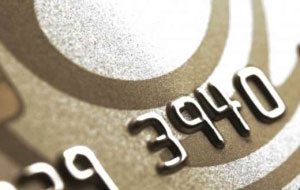The Future Of Credit Cards

In 2011, consumers paid more than $1.5 billion as a result of credit card fraud. While there are multiple safeguards in place to help prevent this type of credit card fraud, many credit card owners are finding fraud occurs far too often. Recently, there have been high profile cases of credit card fraud, like the potentially 40 million credit and debit card accounts that were compromised when the Target computer systems were breached. While these high profile cases are rare, the reward for these security breaches seems to be growing every year, meaning more and more thefts are occurring.
In response to the growing number of U.S. credit card security breaches, many in the U.S. retail sector are in a rush to implement the latest security technology to credit cards and processing systems in the states. This technology, deemed “chip and pin” technology, utilizes a small chip on the credit card to create a unique number and assigns it to every transaction that occurs with that card. This is different from current credit cards as current cards repeatedly use the same number.
This technology, while widespread across the globe, has been virtually nonexistent in the United States. The “chip and pin” technology is set to occur in the U.S. before 2020. Improvements to the credit cards themselves aren’t the only upgrades that need to happen. Retailers are scrambling to upgrade their payment processing systems to make it more difficult for hackers to gain access to valuable customer information.
If credit card fraud has left a mark on your credit history, the first step is working with the credit bureaus and creditors to remove inaccurate items from your credit report. Credit Navigators at Trinity Credit Services can give you the direction to rebuild positive credit and educate you on good buying decisions moving forward.
Trinity Credit Services is here to answer any questions you may have about credit repair.
